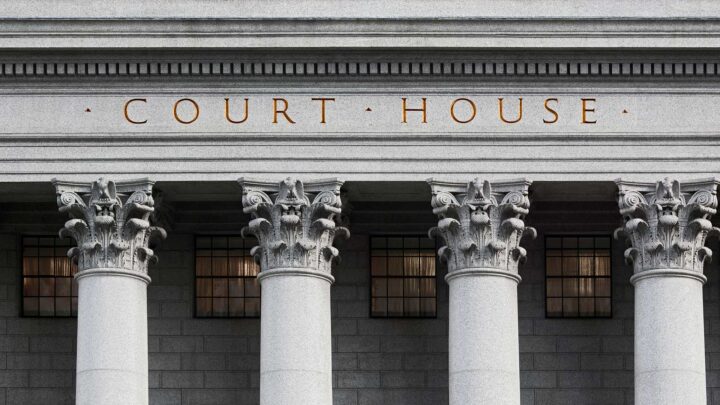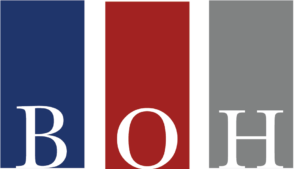Our law firm has helped develop some of the most important case law in the area of the False Claims Act as applied here in New Jersey. In 2019, in the case of Charte v. American Tutor, et. al., we secured a precedential decision from the Third Circuit Court of Appeals in Philadelphia on a case
Byrnes O’Hern & Heugle, LLC offers experienced, professional Alternative Dispute Resolution, more commonly known as Mediation. Mediation refers to the process of using a trained, third-party mediator to resolve any issues including but not limited to contract disputes, construction, employment,
Judges and juries do not always render correct decisions. When confronted with an adverse decision or verdict, in most instances a party has an automatic right to appeal to a higher lever court known as an appellate court. Broadly stated, appellate practice involves the practice of law before
The busiest courts in the state of New Jersey are the Municipal Courts of the over 500 towns in New Jersey. These courts handle traffic offenses, DWIs, assaults, drug possession charges, harassment and numerous other violations. The attorneys of Byrnes, O’Hern & Heugle have experience defending
Daniel J. O’Hern and Sean F. Byrnes have both been elected to their respective town councils. Mr. Byrnes has experience as a Municipal Prosecutors, and Mr. O’Hern currently has served as the attorney for the Borough of Red Bank. Their combined experience leaves them well positioned to represent
Our individual and business clients brush up against municipal government in a number of ways. Individual clients seek our services when dealing with summonses received for automobile, traffic, and minor criminal charges. Property owners often face code enforcement issues in local municipalities
Depending on where you live and how long you have lived in your home, the time may be right to file a tax appeal. If your assessment seems high, or you know your neighbors’ assessments are lower than yours, you have a right to file a tax appeal to the County Tax Board to seek a reduction of your
Byrnes O’Hern & Heugle is committed to defending clients threatened with or facing foreclosure. The events of the last several years have raised serious questions regarding bank conduct in originating, servicing and securitizing loans. Reports of robo-signing of documents, fraudulent practices
Land Use and Zoning law is a specialized area of the law that requires a thorough knowledge of land use and zoning laws. The attorneys at Byrnes O’Hern & Heugle are experienced practitioners in this area of the law, having represented clients before municipal planning boards and zoning boards of
The attorneys at Byrnes, O’Hern & Heugle have significant experience representing applicants applying to Planning and Zoning Boards seeking variances and site plan approvals. In New Jersey, Each municipality has its own Planning Ordinance setting forth the town’s development requirements.
The process of Closing a commercial real estate transaction differs significantly from a residential transaction. A lender’s requirements typically demand more from the borrower purchasing a commercial piece of real estate than from a homeowner. From the formation of the Contract to Closing, the
Residential real estate transactions are the most prevalent form of legal transaction in the State of New Jersey. While each real estate transaction is unique in its own way, they do follow a series of events which are described below. The four phases of a residential real estate transaction in
The ownership of real estate and the issues arising from such ownership form the bedrock of many of the legal and financial relationships between individuals and corporate entities. Understanding the issues confronting owners of real estate when they purchase, sell, finance and refinance real
Buy-Sell Agreement: An Overview A buy sell agreement is a contract between business owners that determines what happens to business ownership upon the occurrence of a triggering event, such as death, retirement, bankruptcy, or sale of the business. A buy sell agreement can mitigate confusion and
The law firm of Byrnes, O’Hern & Heugle specializes in assisting small and closely held local businesses in purchasing and selling ownership interests in these businesses or the assets of the businesses. Whether an asset purchase or a sale of stock or membership interests, we can help. Even
The explosion of Limited Liability Companies over the last decade continues. For most situations, especially new businesses with a small number of owners, the Limited Liability Company offers an attractive array of benefits from reducing liability exposure for its owners to favorable tax treatment.
At Byrnes, O’Hern & Heugle, we guide small and medium sized businesses through the process of forming, organizing, and growing their business. We assist our business law clients in deciding upon the appropriate corporate structure for their business, the terms of the relationship between the
As our society ages, a growing segment of our population will need assistance from friends and family members to manage their affairs. From asset planning, Medicaid advice, long term care insurance, our seniors will need the assistance of competent legal counsel to navigate the complex array of laws
Trusts are an estate planning device you can use to manage your properties and holdings and avoid tax burdens. A trust can either be created during a person’s lifetime (a living trust), or after death (a testamentary trust) by a will. A trust creates a legal relationship between the trustee (the
A living will describes your preferences for medical treatment and care in the event that you are incapacitated and can no longer communicate your wishes. A living will is sometimes called an advanced directive for health care. Thinking about your end of life wishes can be overwhelming and scary.
What is a Last Will? A last will (often referred to as a will or last will and testament) is a legal document that dictates how a person’s assets will be distributed. A person must be at least eighteen years of age in order to create a will, and the will must be in writing. The testator (the person
We are experienced and knowledgeable Red Bank NJ Probate Lawyers In an effort to sell Living Trusts and other estate planning documents, lawyers and other professionals will often bemoan the prospect of probating a Will. In fact, probating a Will with one of the Surrogates in the County of New
Navigating the Probate Process Begins With Proper Estate Planning Delaying the preparation of your Will is normal, but it can have consequences. You need a Will to ensure that your family and loved ones are protected and receive what was intended for them. You also want to make sure that you have
The best way to win employee claims is to avoid them altogether. In our experience, many of the claims brought by disgruntled employees arise because an employer failed to address a situation. Even after an employee has been aggrieved, there often remains a period of time when an acknowledgment of a












